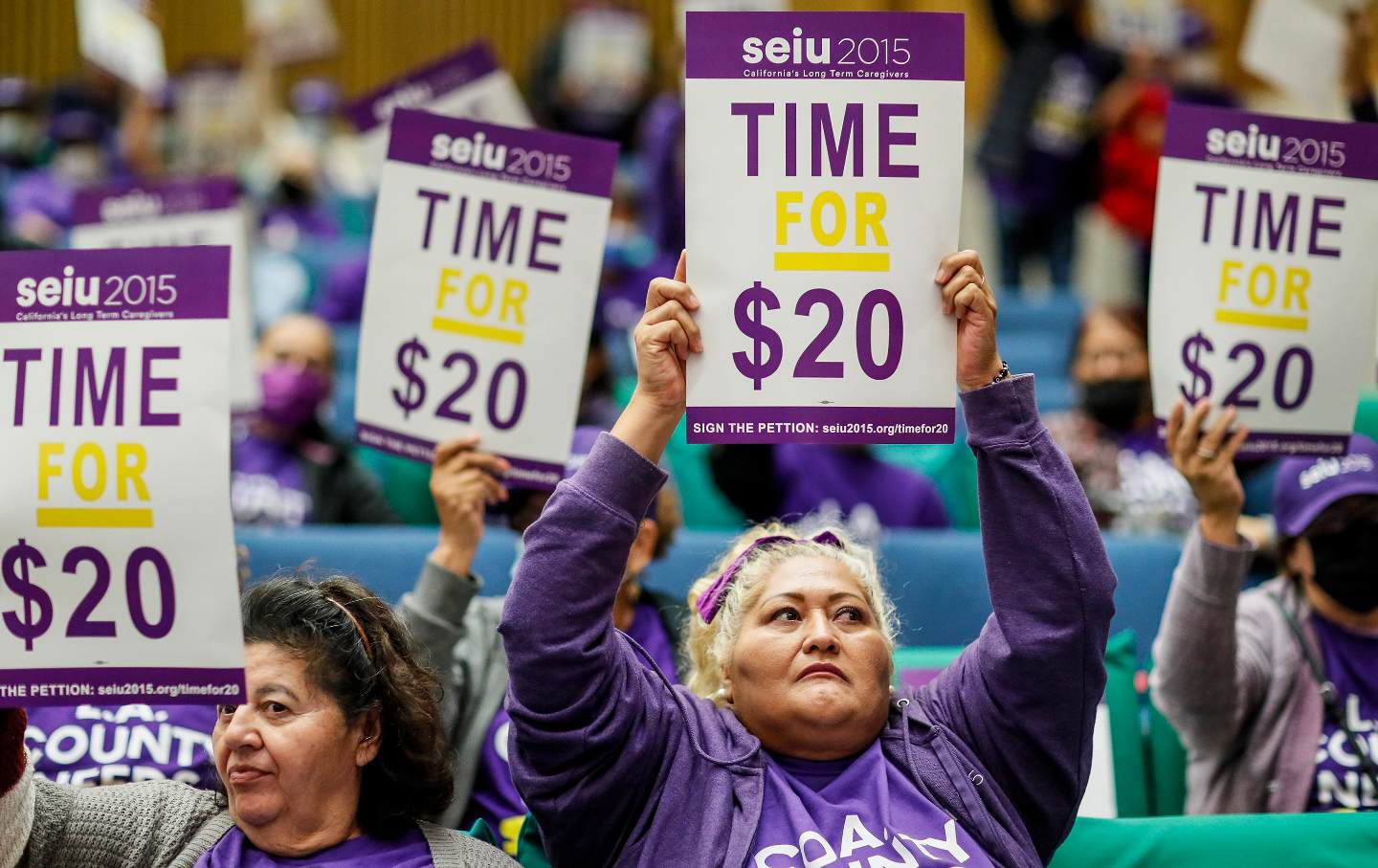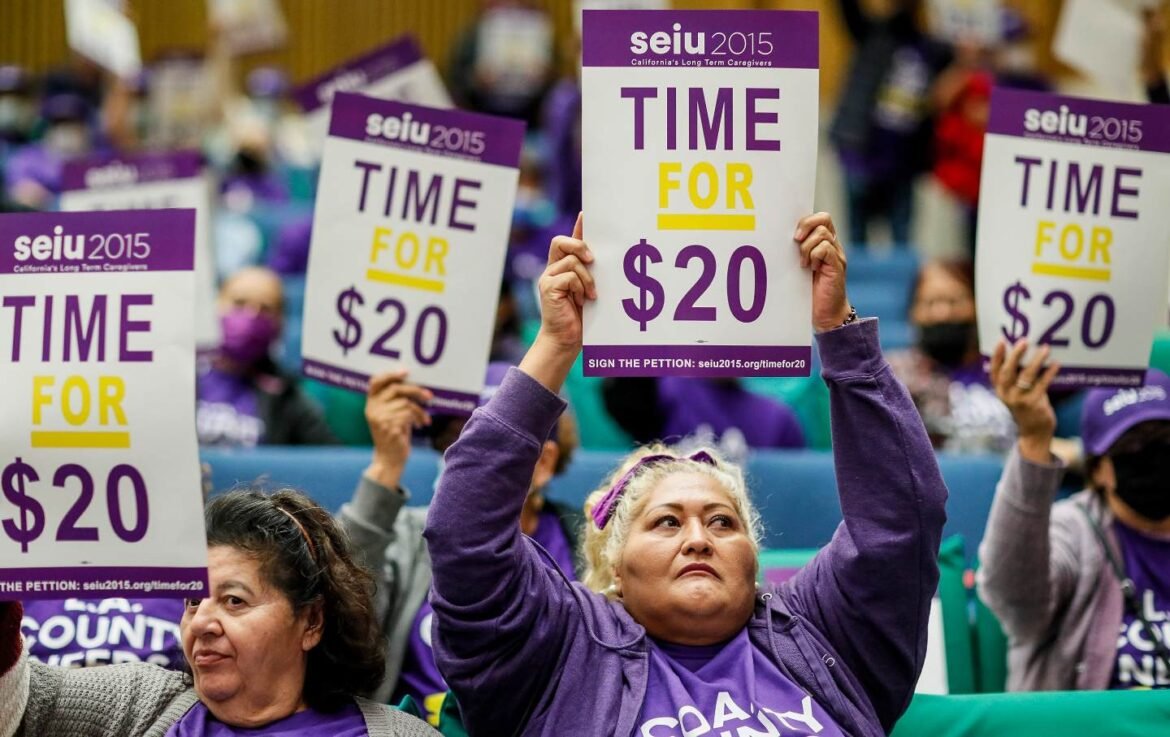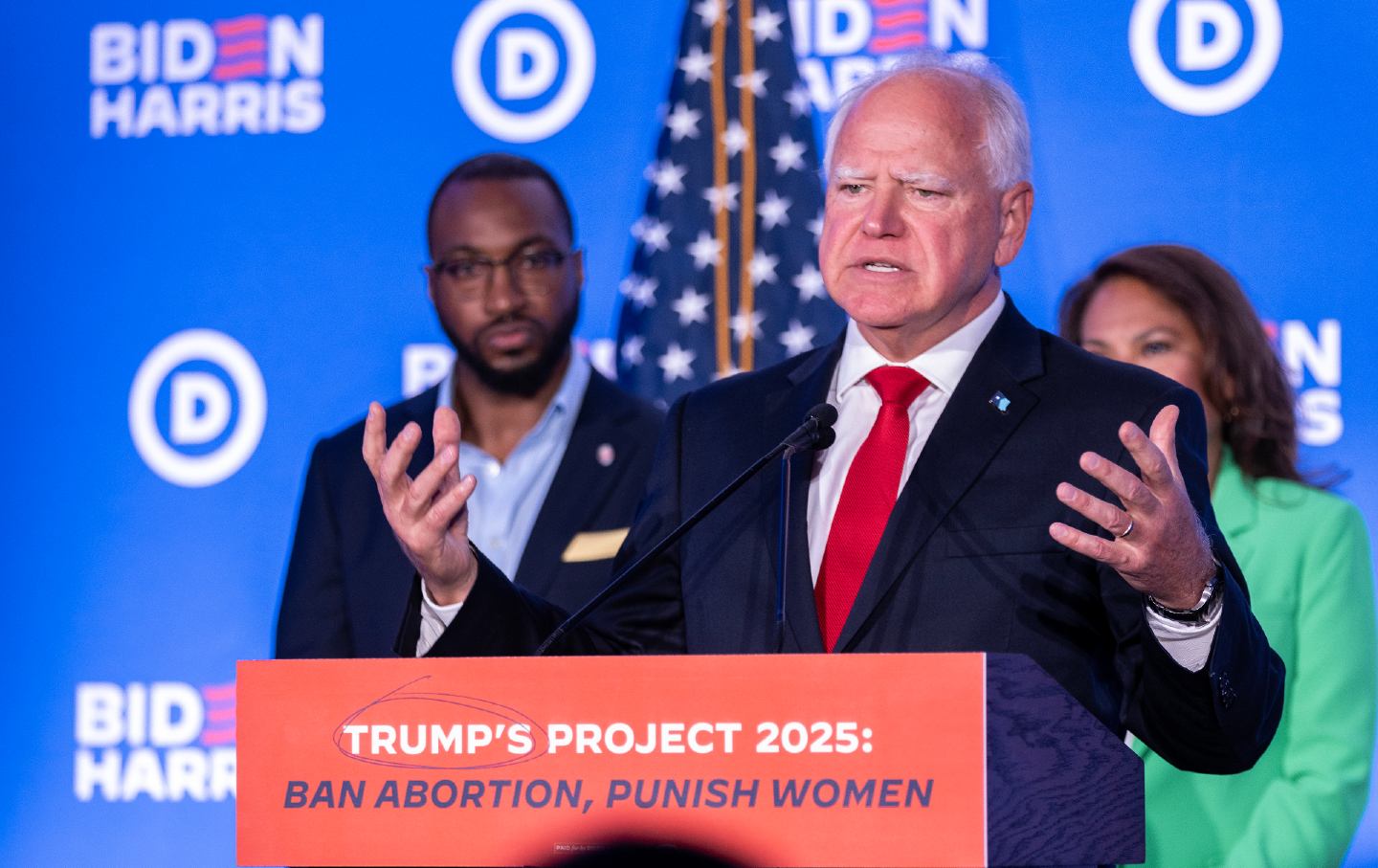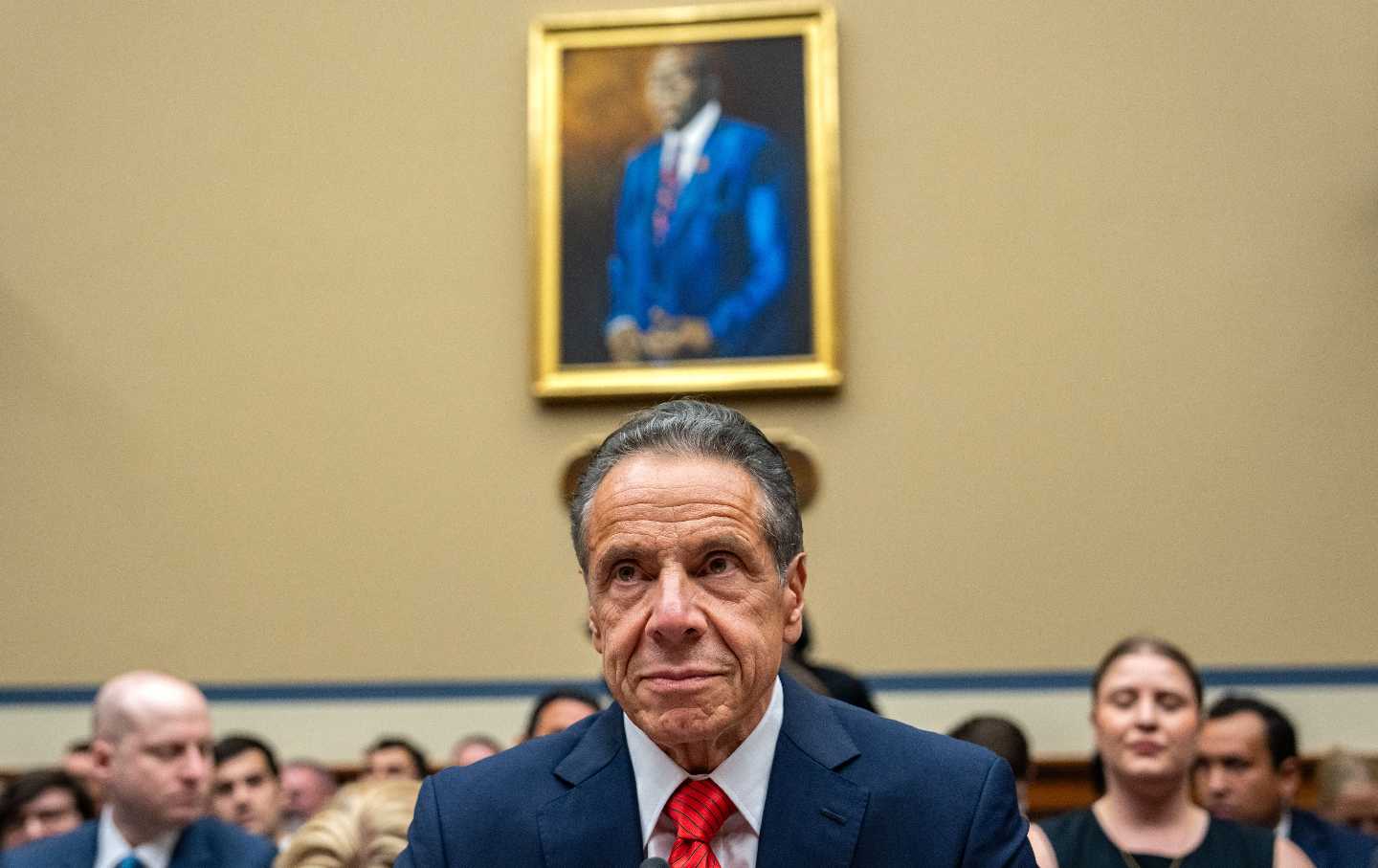With the federal minimum wage stagnant for over 15 years, voters in Alaska, California, Missouri, and Massachusetts will decide on ballot measures to raise their wages.

Protesters at a meeting of the Los Angeles County Board of Supervisors calling for increased pay.
(Robert Gauthier / Getty)
On July 24, 2009, Congress set the federal minimum wage to $7.25 an hour. It has not been raised since.
Because wages are not pegged to inflation, minimum-wage workers across the United States often find their purchasing power reduced year after year, and a wage that was “livable” in 2009 is not nearly enough to get by on in 2024. Earlier this month, vice president Kamala Harris advocated for increasing the minimum wage to $15 an hour during an interview with NBC, calling the current rate “poverty wages.”
This November, voters in Alaska, California, Missouri, and Massachusetts will decide on ballot measures to create higher minimum wages in their states. Between 1996 and 2023, there were 28 ballot measures across the country that proposed raising the minimum wage, and only two were voted down.
In California, Proposition 32 would set the state minimum wage to $18 an hour—making it the highest statewide minimum wage in the US. In its endorsement of Prop 32, the San Francisco Chronicle editorial board noted that $18 an hour, while “still below the cost of living in the state’s cheapest county,” would nevertheless be a step in the right direction.
“Restaurant workers, delivery workers, homecare workers are just some of the more than 2 million workers who will benefit from Prop 32,” wrote the “Yes On Proposition 32” group backing the initiative. “People who work full-time should get paid enough to live on and not have to take on second and third jobs just to keep a roof over their heads and feed their families.”
Joe Sanberg, an entrepreneur in Los Angeles and the committee’s top funder, emphasized the urgency of an increase in an interview with NBC. “Millions of Californians are working more than full-time and still can’t afford life’s basic needs,” he said. “We need to fix that—and in fixing that and raising the wage, create economic prosperity that lifts the tide for all Californians.”
In Massachusetts, voters will also consider additional wage protections for tipped workers. Traditionally, these workers rely on tips to supplement the minimum wage, which can lead to deductions from their paychecks. Question 5 would ensure that tipped workers receive the state minimum wage of $15 an hour—in addition to any tips earned—and introduce a gradual wage increase for tipped workers.
One Fair Wage plus Tips MA is leading the initiative, noting the decline in workers in the state’s restaurant industry. “Thousands of tipped workers in Massachusetts are leaving the restaurant industry and are not willing to return without One Fair Wage, and nearly 250 Massachusetts employers are now paying One Fair Wage to recruit staff and seek a level playing field.”
Missouri and Alaska are also voting on initiatives that would push the minimum wage to $15 an hour. The referendum would also stipulate required paid sick leave for workers, which was previously at the discretion of individual employers.
Alaska’s Ballot Measure 1 is in the tradition of a long history of progressive workplace laws in the state. After being the first state to pass a minimum wage higher than the federal requirement, Alaska maintained the highest rate for more than 30 years. Along with raising the minimum wage, the measure would also forbid employers from forcing employees to participate in meetings about religion and politics unrelated to their jobs.
In Missouri, Proposition A would require employers to provide one hour of paid sick leave for every 30 hours worked and raise the wage to $15 an hour by 2026. The last time the wage was increased in Missouri was in 2018 with Proposition B,which passed with over 62 percent of the vote.
“As a working parent myself, I understand what it means when my kid gets sick, and I have to call in and wonder what that means for my job and my security,” said Missouri state Representative Crystal Quade during a gubernatorial debate in September sponsored by the Missouri Press Association. “I’ve had good jobs, but not everybody has that affordability where their employer is flexible with them.”
Read the rest of StudentNation’s dispatches on the 2024 election here.
Can we count on you?
In the coming election, the fate of our democracy and fundamental civil rights are on the ballot. The conservative architects of Project 2025 are scheming to institutionalize Donald Trump’s authoritarian vision across all levels of government if he should win.
We’ve already seen events that fill us with both dread and cautious optimism—throughout it all, The Nation has been a bulwark against misinformation and an advocate for bold, principled perspectives. Our dedicated writers have sat down with Kamala Harris and Bernie Sanders for interviews, unpacked the shallow right-wing populist appeals of J.D. Vance, and debated the pathway for a Democratic victory in November.
Stories like these and the one you just read are vital at this critical juncture in our country’s history. Now more than ever, we need clear-eyed and deeply reported independent journalism to make sense of the headlines and sort fact from fiction. Donate today and join our 160-year legacy of speaking truth to power and uplifting the voices of grassroots advocates.
Throughout 2024 and what is likely the defining election of our lifetimes, we need your support to continue publishing the insightful journalism you rely on.
Thank you,
The Editors of The Nation
More from The Nation

The “secret” almost certainly involves a plan to install Trump in the White House if he loses the election—but this plan could be even worse than you think.




